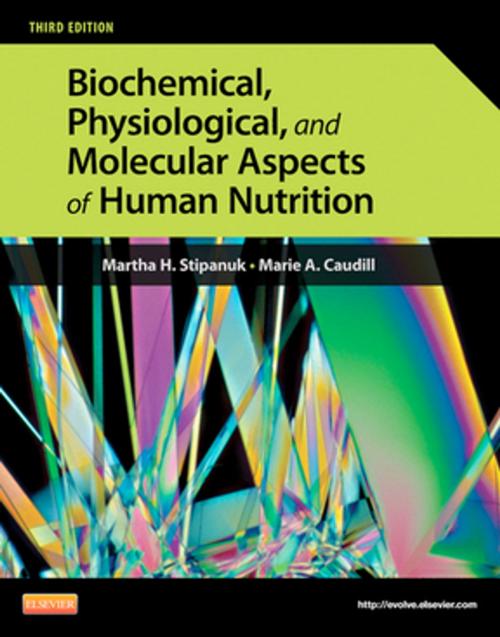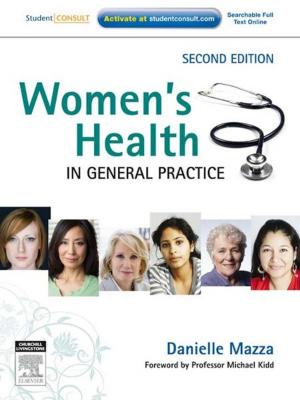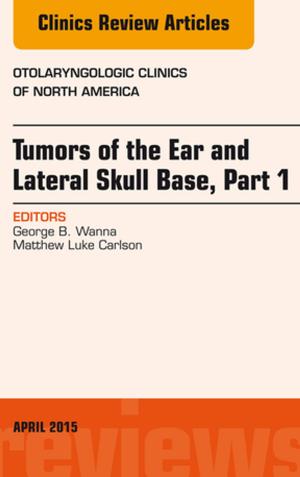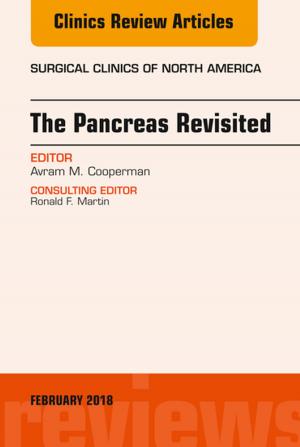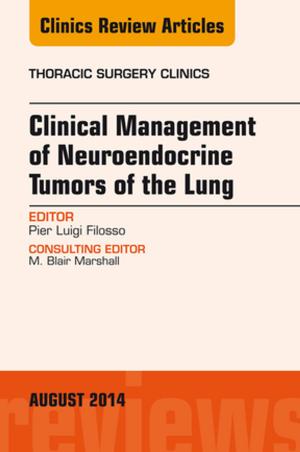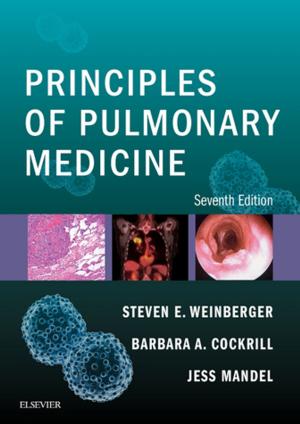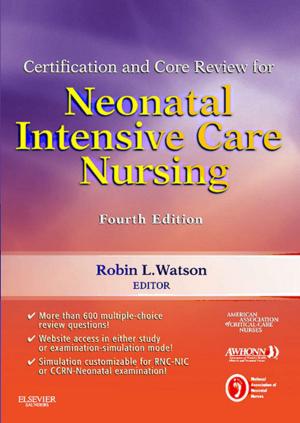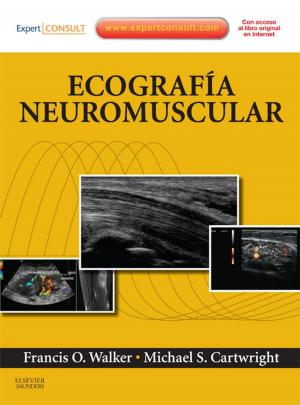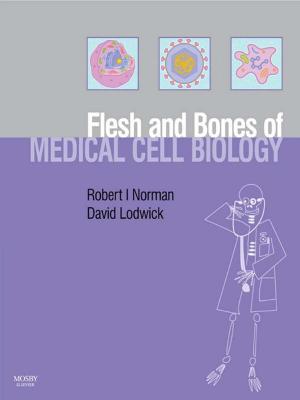Biochemical, Physiological, and Molecular Aspects of Human Nutrition - E-Book
Nonfiction, Health & Well Being, Medical, Nursing, Nutrition, Alternative & Holistic Medicine, Diet Therapy| Author: | Marie A. Caudill, Martha H. Stipanuk, PhD | ISBN: | 9780323266956 |
| Publisher: | Elsevier Health Sciences | Publication: | August 13, 2013 |
| Imprint: | Saunders | Language: | English |
| Author: | Marie A. Caudill, Martha H. Stipanuk, PhD |
| ISBN: | 9780323266956 |
| Publisher: | Elsevier Health Sciences |
| Publication: | August 13, 2013 |
| Imprint: | Saunders |
| Language: | English |
Covering advanced nutrition with a comprehensive, easy-to-understand approach, Biochemical, Physiological, and Molecular Aspects of Human Nutrition, 3rd Edition focuses on the biology of human nutrition at the molecular, cellular, tissue, and whole-body levels. It addresses nutrients by classification, and describes macronutrient function from digestion to metabolism. This edition includes the new MyPlate dietary guide and recommendations from the Dietary Guidelines for Americans 2010, plus coverage of the historical evolution of nutrition and information on a wide range of vitamins, minerals, and other food components. In Biochemical, Physiological, and Molecular Aspects of Human Nutrition, lead authors Martha H. Stipanuk and Marie A. Caudill are joined by a team of nutrition experts in providing clear, concise, coverage of advanced nutrition.
-
55 expert contributors provide the latest information on all areas of the nutrition sciences.
-
Nutrition Insight boxes discuss hot topics and take a closer look at basic science and everyday nutrition.
-
Clinical Correlationboxes show the connection between nutrition-related problems and their effects on normal metabolism.
-
Food Sourcesboxes summarize and simplify data from the USDA National Nutrient Database on the amount and types of foods needed to reach the recommended daily allowances for vitamins and minerals.
-
DRIs Across the Life Cycle boxes highlight the latest data from the Institute of Medicine on dietary reference intakes for vitamins and minerals, including coverage of infants, children, adult males and females, and pregnant and lactating women.
-
Life Cycle Considerations boxes highlight nutritional processes or concepts applicable to individuals of various ages and in various stages of the life span.
-
Thinking Critically sections within boxes and at the end of chapters help in applying scientific knowledge to "real-life" situations.
-
Lists of common abbreviations provide an overview of each chapter's content at a glance.
-
Comprehensive cross-referencing by chapters and illustrations is used throughout.
-
Current references and recommended readings connect you to nutrition-related literature and provide additional tools for research.
-
Coverage of the USDA's MyPlate dietary guide reflects today's new approach to diet and nutrition.
-
Recommendations outlined in the Dietary Guidelines for Americans 2010 are incorporated throughout the book.
-
Updated format features more subheadings, tables, and bullets, making it easier to learn and recall key points.
-
Updates of key chapters and boxes reflect significant changes within the fields of nutrition, biology, molecular biology, and chemistry.
-
NEW illustrations simplify complex biochemical, physiological, and molecular processes and concepts.
Covering advanced nutrition with a comprehensive, easy-to-understand approach, Biochemical, Physiological, and Molecular Aspects of Human Nutrition, 3rd Edition focuses on the biology of human nutrition at the molecular, cellular, tissue, and whole-body levels. It addresses nutrients by classification, and describes macronutrient function from digestion to metabolism. This edition includes the new MyPlate dietary guide and recommendations from the Dietary Guidelines for Americans 2010, plus coverage of the historical evolution of nutrition and information on a wide range of vitamins, minerals, and other food components. In Biochemical, Physiological, and Molecular Aspects of Human Nutrition, lead authors Martha H. Stipanuk and Marie A. Caudill are joined by a team of nutrition experts in providing clear, concise, coverage of advanced nutrition.
-
55 expert contributors provide the latest information on all areas of the nutrition sciences.
-
Nutrition Insight boxes discuss hot topics and take a closer look at basic science and everyday nutrition.
-
Clinical Correlationboxes show the connection between nutrition-related problems and their effects on normal metabolism.
-
Food Sourcesboxes summarize and simplify data from the USDA National Nutrient Database on the amount and types of foods needed to reach the recommended daily allowances for vitamins and minerals.
-
DRIs Across the Life Cycle boxes highlight the latest data from the Institute of Medicine on dietary reference intakes for vitamins and minerals, including coverage of infants, children, adult males and females, and pregnant and lactating women.
-
Life Cycle Considerations boxes highlight nutritional processes or concepts applicable to individuals of various ages and in various stages of the life span.
-
Thinking Critically sections within boxes and at the end of chapters help in applying scientific knowledge to "real-life" situations.
-
Lists of common abbreviations provide an overview of each chapter's content at a glance.
-
Comprehensive cross-referencing by chapters and illustrations is used throughout.
-
Current references and recommended readings connect you to nutrition-related literature and provide additional tools for research.
-
Coverage of the USDA's MyPlate dietary guide reflects today's new approach to diet and nutrition.
-
Recommendations outlined in the Dietary Guidelines for Americans 2010 are incorporated throughout the book.
-
Updated format features more subheadings, tables, and bullets, making it easier to learn and recall key points.
-
Updates of key chapters and boxes reflect significant changes within the fields of nutrition, biology, molecular biology, and chemistry.
-
NEW illustrations simplify complex biochemical, physiological, and molecular processes and concepts.
